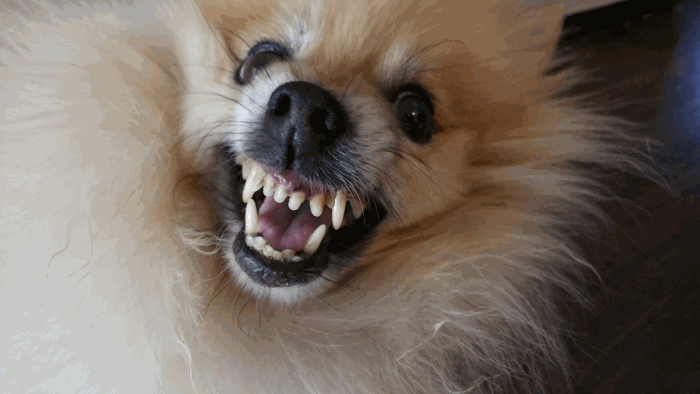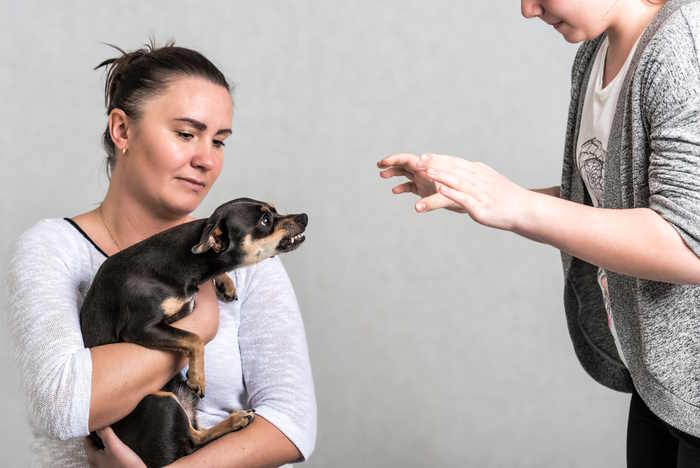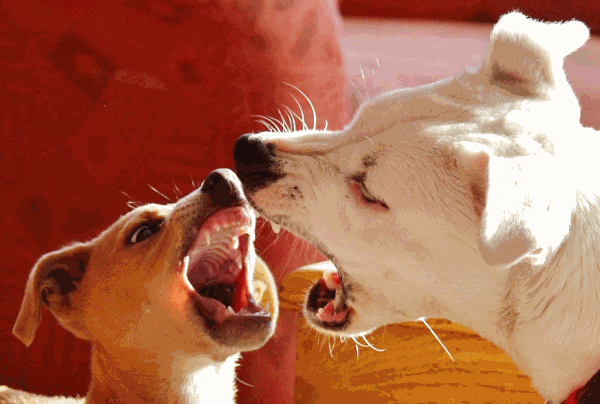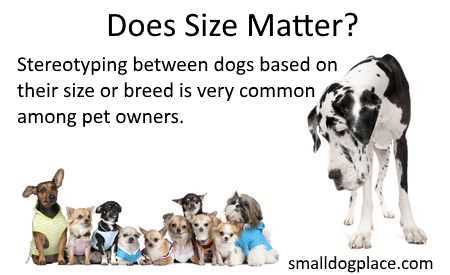- Small Dog Place Home
- Behavior Problems
- Are Small Dogs More Aggressive?
Small Dogs Are More Aggressive? You You Agree?
Small Dogs are More Aggressive |Last Updated 04-06-2024
Small dogs are often the subject of debate regarding their seemingly aggressive behavior. These tiny canine companions, often no larger than a loaf of bread, are known to be feisty, yappy, and quick to lash out. But is there any truth to this stereotype?
Are small dogs more aggressive than their larger counterparts? I was curious about this because I’ve lived with small dogs most of my life.
 Are Small Dogs More Aggressive
Are Small Dogs More AggressiveDo You Believe that Small Dogs are More Aggressive?
I’ve never had a dog that bit another person, but I have seen evidence of many of the different types of aggression I list below. After reading this article, please feel free to share your own experiences with either a dog you owned or one you encountered.
In this comprehensive exploration, we will delve into the world of small dogs, uncovering the reasons behind their behavior and offering insights into the factors that may contribute to their aggression.
What is Dog Aggression?
According to James O’Heare aggression is “an attack, a deliberate attack, or a threat of an attack on another individual”. 1
Types of Aggression

Aggression is one of the most common behavior issues that most dog owners complain about. In fact, it has become a public safety dilemma.
There are several different types of aggressive behavior.
- Territorial Aggression (Showing aggression toward a person or animal on their property)
- Protective Aggression (Aggression resulting when the dog feels a member of his family is in danger)
- Possessive Aggression (Aggressive tendencies from trying to protect a possession (toy, food)
- Fear Aggression (displayed by a fearful dog occurring when a dog feels trapped)
- Defensive Aggression (caused by fear and expressed as attacking)
- Social Aggression (Occurs when a dog feels he is at the top of the pecking order)
- Frustration-Elicited Aggression (caused when a dog feels he cannot get what he wants)
- Pain-induced aggression (triggered when a dog is in pain)
- Sex-Related Aggression (happens in intact males fighting over a female in heat, and in females fighting for access to a male.
- Maternal aggression (demonstrated when a mother dog is protecting her puppies)
- Predatory Aggression (some small dogs with high prey drives may chase and grab fast-moving things)
The Perceptions of Small Dogs
Are Small Dogs More Aggressive? The Stereotype
 Are small dogs more aggressive towards other dogs?
Are small dogs more aggressive towards other dogs?Small dog breeds, such as Chihuahuas, Yorkshire Terriers, and Dachshunds, are often associated with a range of negative behaviors, including excessive barking, snapping, and even biting.
This has led to the development of the so-called "small dog syndrome," where people assume that small dogs are more prone to aggression and misbehavior. But how accurate is this stereotype? Are small dogs more aggressive, or is this just a misconception society perpetuates?
Small Dogs in the Media
The media has played a significant role in shaping the public's perception of small dogs. Television shows, movies, and commercials often portray tiny dogs as snappy, yappy, and prone to aggressive behavior.
In other shows, small dogs are dressed, carried in purses, and pampered by their owners. This representation has likely contributed to the widespread belief that small dogs are inherently more aggressive than larger breeds.
However, it is important to recognize that these portrayals are often exaggerated for dramatic effect and may not accurately reflect the true nature of small dogs. Still believe that small dogs are more aggressive? Keep reading.
The Science Behind Small Dog Aggression
Studies on Aggression in Dogs

A number of scientific studies have attempted to uncover the truth about aggression in small dogs. One such study by Christine Arhant of the University of Veterinary Medicine in Vienna found that smaller dogs were more likely to display aggressive behavior than larger breeds. The study also revealed that small dogs were more likely to be anxious and fearful, which could contribute to their aggressive tendencies.
Another study by researchers at the University of Pennsylvania found that smaller dogs were more likely to bite than larger dogs. This supports the idea that small dogs may be more prone to aggressive behavior.
In another study of Finnish Dogs, researchers found that aggressive dogs were often male, smaller in size, the owners’ first dog and the only dog in a family. 2
Age and pain have also been studied and found to have a link. Older dogs suffering from a health problem such as hip dysplasia that causes pain may be more aggressive than their younger counterparts.3
Nature vs. Nurture
While some studies suggest that small dogs may be genetically predisposed to aggression, it is important to consider environmental factors' role in shaping a dog's behavior. How a dog is raised, trained, and socialized can significantly impact their temperament, regardless of size or breed.
A dog that is not properly socialized or trained may be more likely to display aggressive behavior, regardless of whether they are a small or large breed. In this sense, the aggression observed in small dogs may result more from nurture than nature.
Reasons Behind Small Dog Aggression
Protective Instincts
One possible reason for the aggressive behavior exhibited by small dogs is their natural protective instincts. In the wild, animals must constantly be on guard against potential threats, and making themselves appear larger and more intimidating is one way to ward off predators.
For small dogs, barking and aggressive posturing may be a way to compensate for their diminutive size and make themselves appear more formidable.
Fear and Anxiety
The world can be frightening for a tiny dog, with everyday objects and experiences appearing much more intimidating than they would to a larger canine.
Studies have shown that dogs with shorter legs are more likely to react fearfully to unfamiliar dogs and display aggressive behavior toward their owners. This suggests that the aggression observed in small dogs may actually be a response to fear and anxiety rather than an innate aggressive trait.
Inadequate Training and Socialization
Many small dog owners treat their pets as if they were helpless infants, coddling them and failing to provide proper training and socialization.
Owners may find picking up their small dogs easier than teaching them how to behave properly. This can result in a dog that is poorly equipped to navigate the world, leading to fear and anxiety that may manifest as aggression.
Proper socialization and training are crucial for all dogs, regardless of size, to ensure they can interact appropriately with their environment and other animals.
Genetic Factors
Some research suggests that genetic factors may make smaller dogs more prone to aggressive behavior. Smaller breeds may possess genes contributing to poor health and undesirable psychological traits, which could increase aggression.
However, this is not to say that all small dogs are genetically predisposed to aggression; many small breeds live long, healthy lives and display perfectly friendly and well-adjusted behavior.
Debunking the Myth: Are Small Dogs Truly More Aggressive?

The answer to whether small dogs are more aggressive than larger ones is not as clear-cut as it may seem. While some studies suggest that small dogs are more prone to aggression, others argue that the opposite is true.
Ultimately, the key factor in determining a dog's behavior is not their size but how they are raised and trained.
Proper socialization, training, and boundary-setting can help prevent aggression in dogs of all sizes.
By addressing aggressive behavior early on and seeking the assistance of professional trainers and veterinarians as needed, dog owners can ensure that their pets are well-adjusted and well-behaved, regardless of their size.
How to Prevent and Manage Small Dog Aggression
Early Training and Socialization
One of the most effective ways to prevent aggression in small dogs is to begin training and socialization early in their lives.
Proper socialization can help reduce fear and anxiety in dogs, making them less likely to exhibit aggressive behavior. Introducing your small dog to various people, animals, and environments at a young age can help them become more confident and well-adjusted.
Consistent and Positive Training
Consistency is key when it comes to training small dogs. Ensuring that your dog understands and adheres to your rules and boundaries can help prevent aggressive behavior. Utilizing positive reinforcement techniques, such as praise and treats, can effectively teach your dog desirable behaviors and discourage aggression.
Understanding Your Dog's Needs
It's important for small dog owners to recognize and understand their pet's unique needs and behaviors. By learning to read your dog's body language and responding appropriately to their emotions, you can help to prevent aggressive behavior and ensure that your dog feels safe and secure.
Managing Fear and Anxiety
If your small dog exhibits aggressive behavior due to fear and anxiety, it's important to address these issues and help your pet feel more comfortable and secure. This may involve working with a professional dog trainer or behaviorist or implementing strategies to reduce stress and anxiety in your dog's environment.
Exercise and Mental Stimulation
Providing your small dog with adequate exercise and mental stimulation can help to reduce aggression and other undesirable behaviors. Regular physical activity and engaging in activities that challenge your dog's mind can help to keep them happy, healthy, and well-behaved.
The Role of Breed Stereotypes in Small Dog Aggression
As mentioned earlier, small dog breeds often face negative stereotypes that can contribute to the perception that they are more aggressive than larger dogs.
Media portrayals of small dogs may perpetuate these stereotypes as yappy and snappy, as well as the public's tendency to treat small dogs differently than larger breeds.
It's important for small dog owners to recognize these stereotypes and work to counteract them by providing proper training, socialization, and care for their pets. Doing so can help break down the negative associations surrounding small dogs and promote a more accurate understanding of their behavior and temperament.
The Impact of Aggression on Small Dogs and Their Owners
Aggressive behavior in small dogs can significantly impact both the dog and their owner. Aggression can lead to stress, anxiety, and overall reduced quality of life for the dog.
Dealing with an aggressive small dog can be frustrating, embarrassing, and even dangerous for the owner.
It's essential for small dog owners to address aggressive behavior early on and seek professional assistance if necessary.
By doing so, they can help to ensure that their dog is well-adjusted, happy, and safe and that their relationship with their pet is positive and fulfilling.
The Importance of Advocating for Small Dogs
As a small dog owner, advocating for your pet and challenging the stereotypes and misconceptions surrounding their behavior is important. Educating others about the true nature of small dogs and promoting responsible ownership can help create a more inclusive and understanding environment for these tiny canines.
The Future of Small Dog Aggression
 Do Humans cause Small Dog Syndrome?
Do Humans cause Small Dog Syndrome?As our understanding of dog behavior and psychology continues to evolve, so too will our approach to managing and preventing aggression in small dogs.
Through continued research, education, and advocacy, it's possible to create a world where small dogs are recognized for their unique qualities and potential rather than being unfairly labeled as aggressive or ill-behaved.
Conclusion
In conclusion, while small dogs may be more prone to aggressive behavior than larger breeds, this aggression is not solely due to their size.
Factors such as training, socialization, and genetics all play a role in shaping a dog's temperament, and proper care and management can help to prevent and address aggression in dogs of all sizes.
By understanding small dogs' unique needs and challenges and advocating for responsible ownership, we can work together to create a better, more inclusive world for our pint-sized canine companions.
 Size Matters When it concerns to aggression.
Size Matters When it concerns to aggression.References
1. O’Heare J. Aggressive Behavior in Dogs: A comprehensive Technical Manual for Professionals. 3rd ed. BehaveTech Publishing; Ottawa, ON, Canada: 2017. pp. 1–248.
2. Mikkola, S., Salonen, M., Puurunen, J. et al. Aggressive behaviour is affected by demographic, environmental and behavioural factors in purebred dogs. Sci Rep 11, 9433 (2021). https://doi.org/10.1038/s41598-021-88793-5
3. Camps, T., Amat, M., Mariotti, V. M., Le Brech, S., & Manteca, X. (2012). Pain-related aggression in dogs: 12 clinical cases. Journal of Veterinary Behavior, 7(2), 99-102. https://doi.org/10.1016/j.jveb.2011.08.002
Pin for Future Reference
More About Janice (author and voice behind this site)
Janice Jones has lived with dogs and cats for most of her life and worked as a veterinary technician for over a decade.
She has also been a small-breed dog breeder and rescue advocate and holds academic degrees in psychology, biology, nursing, and mental health counseling.
Her work focuses on helping dog owners make informed, responsible decisions rooted in experience, education, and compassion.
When not writing, reading, or researching dog-related topics, she likes to spend time with her six Shih Tzu dogs, her husband, and her family, as well as knitting and crocheting.
She is also the voice behind Miracle Shih Tzu and Smart-Knit-Crocheting

Free Monthly Newsletter
Sign Up for Our Free Newsletter and get our Free Gift to You.
my E-book, The Top 10 Mistakes People Make When Choosing a Dog (and how to avoid them)
